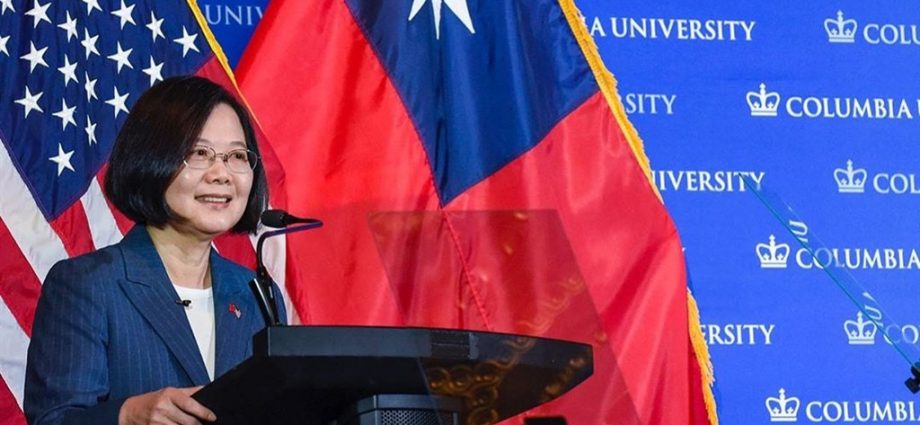
The president of Taiwan, Tsai Ing-wen, traveled on Wednesday to the United States, with stops in Guatemala and Belize, two of the 13 countries in the world that still maintain diplomatic relations with Taipei.
On Sunday, March 26, Honduras announced that it would sever diplomatic ties with Taiwan, and immediately established relations with the People’s Republic of China. It was a hard blow for Tsai, days before a trip that may increase the tension between Washington and Beijing.
Tsai’s trip to the US is yet another chapter in the United States’ recent provocations, questioning Taiwan’s status as a part of China.
Tsai is expected to meet with US House Speaker Kevin McCarthy, who had promised to visit Tsai in Taiwan, repeating his predecessor Nancy Pelosi’s provocative 2022 visit, but in the face of Chinese warnings, McCarthy and Tsai rescheduled the meeting for Los Angeles. Beijing continues to oppose this meeting.
On this trip, Tsai is struggling to maintain what little diplomatic support she still has in the region. Recently, Nicaragua (December 2021) and El Salvador (December 2022) also broke off relations with Taiwan.
Guatemalan President Alejandro Giammattei enjoys the support of Trumpism, the evangelical churches, and Israel. last year, he announced that he would organize a summit of countries that held relations with Taiwan, but backed out.
His insistence on maintaining such relations may be causing economic damage to his country. Taiwan only invested US$22.87 million in Guatemala between 1952 and 2019.
In contrast, countries in the region that have resumed diplomatic ties with China have received significant investments. These are the cases of El Salvador – which received $500 million in 2021 for tourism-related infrastructure projects – and Panama, which since 2017 has received billions of dollars in investments linked to its canal.
Guatemala’s accession to the Belt and Road Initiative could bring significant investment to the country.
Meanwhile, the most important Taiwanese “investment” in recent times in Guatemala has brought controversy. In an unusual arrangement, Taipei agreed to pay $900,000 for the law firm Ballard Partners to lobby in the United States on behalf of the Guatemalan government.
Ballard gained notoriety for its closeness to Donald Trump and its successful lobbying in Washington during his presidency. However, there are doubts about the effectiveness of Ballard’s actions in the current administration of President Joe Biden.
Presidential elections in Guatemala will be held between June and September. By continuing with his policy of supporting the tensions generated by Tsai Ing-wen, and encouraged by Washington, Giammattei is taking risks.
Tsai’s Democratic Progressive Party (DPP) suffered a major defeat against the Kuomintang (KMT) in last year’s Taiwanese municipal elections, and has been weakened in view of the next general elections in 2024. The fate of the Giammattei government could be the same.
This article was produced by Globetrotter, which provided it to Asia Times.

